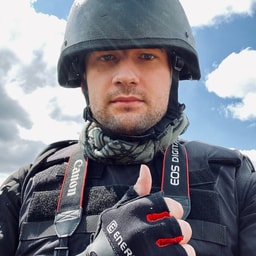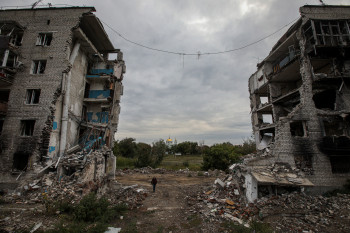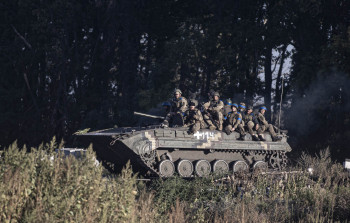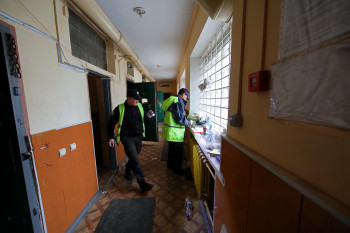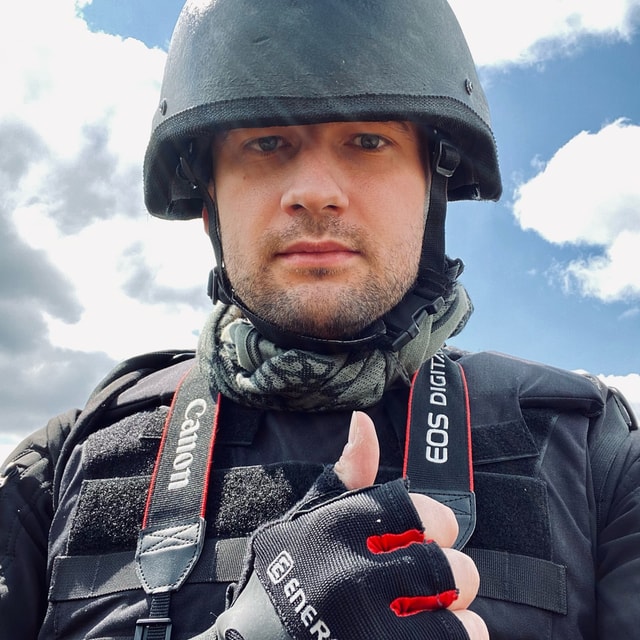Survivors of Russian occupation: 'You say something wrong – you get a sack on your head'
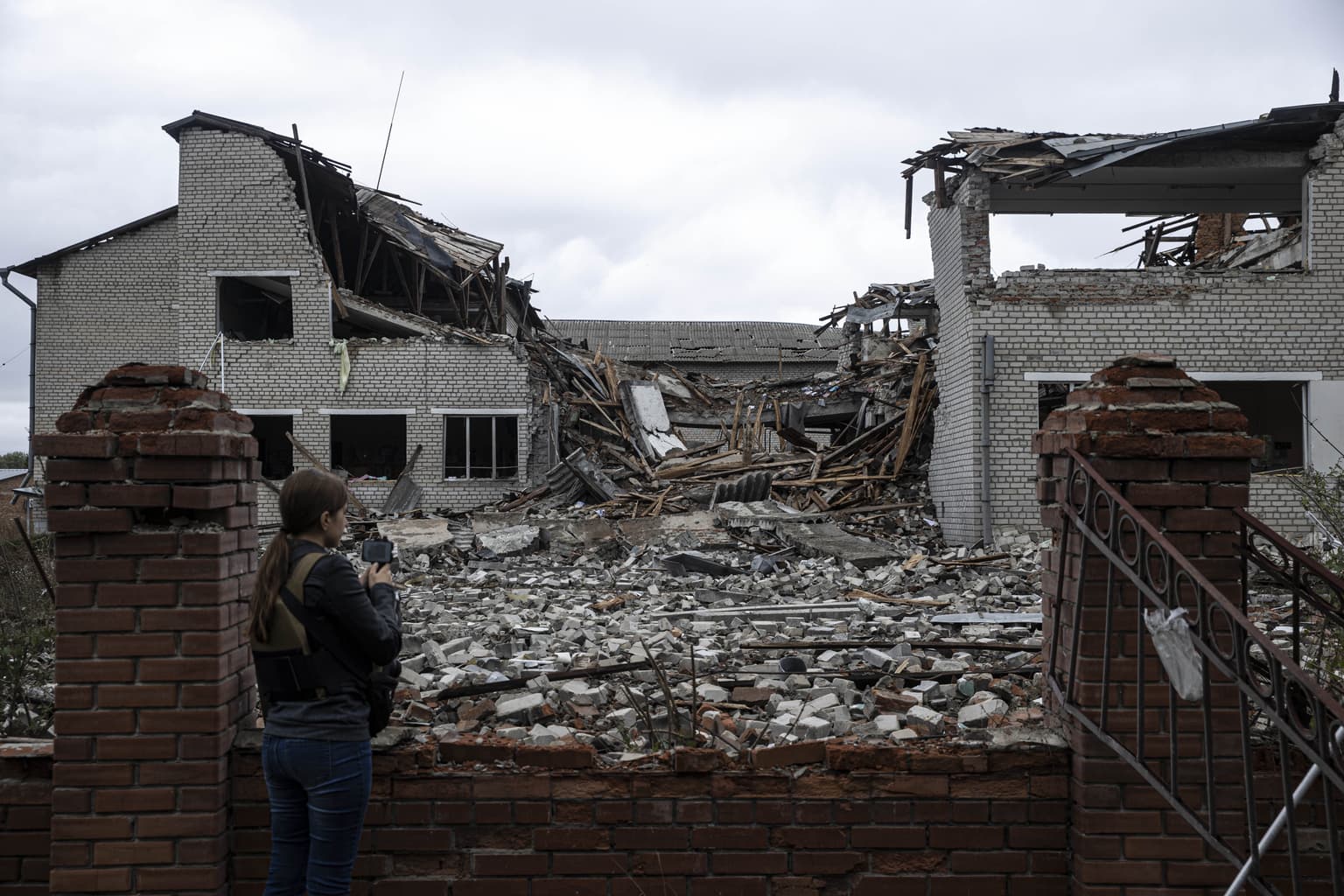
BALAKLIIA, Kharkiv Oblast — In the early morning on Sept. 6, Alla Nikulina, an exiled school principal from the village of Verbivka, got a sudden and emotional phone call.
“It’s happening,” Nikulina’s colleague was saying with her voice trembling.
“Our boys are coming.”
The Ukrainian military suddenly launched a crushing attack near Verbivka, a small town of 3,000 people occupied by Russian forces since March 7.
Balakliia and Verbivka are located so close to each other that they are, in fact, one city.
Both were liberated within several days.
Nikulina was staying in a nearby Ukrainian-controlled town, working as a school principal in exile and organizing online classes for her students.
A Viber messenger chat of Verbivka teachers was boiling. The news spread quickly — teachers and students alike had high expectations.
Just hours later, Nikulina got another phone call: “Hello there, we’re from Ukraine!”
Residents of Verbivka managed to get the connection and tell their school principal they were free again.
Verbivka became the first town liberated as part of Ukraine’s lightning counter-offensive, resulting in a spectacular Russian defeat in Kharkiv Oblast.
After Verbivka, Ukrainian soldiers rushed to retake the city of Balakliia and continued their drive up to the Oskil River.
People were rejoicing. Yet, not for long.
The next day, two Russian artillery shells landed in Verbivka, destroying Nikulina’s school.
The local community’s pride was turned into a heap of broken bricks and crushed walls in just a snap. A dozen teachers and some 300 students were heartbroken.
That was the Russian military’s last goodbye to the town they had lost within hours.
Sacks on heads
Wiping tears off her eyes, principal Nikulina walks among her school’s ruins, with broken glass cracking under her feet.
The Verbivka school, classified as a lyceum, was among Kharkiv Oblast’s best educational facilities.
Before their defeat, Russians used the building as their local headquarters.
“We’re going to reconstruct it,” she keeps saying.
But realistically, the destruction is almost total.
Days after the Ukrainian troops entered the town, Verbivka was still to be reconnected to the local electricity grid damaged amid the fighting.
Still, in a blackout, locals would meet up at the Izhachok (“little hedgehog”) grocery just next to the ruined school, parking lots of elderly bicycles at the site.
Russian forces reached Verbivka, located 100 kilometers deep in Ukraine’s territory, within two weeks of the full-scale invasion.
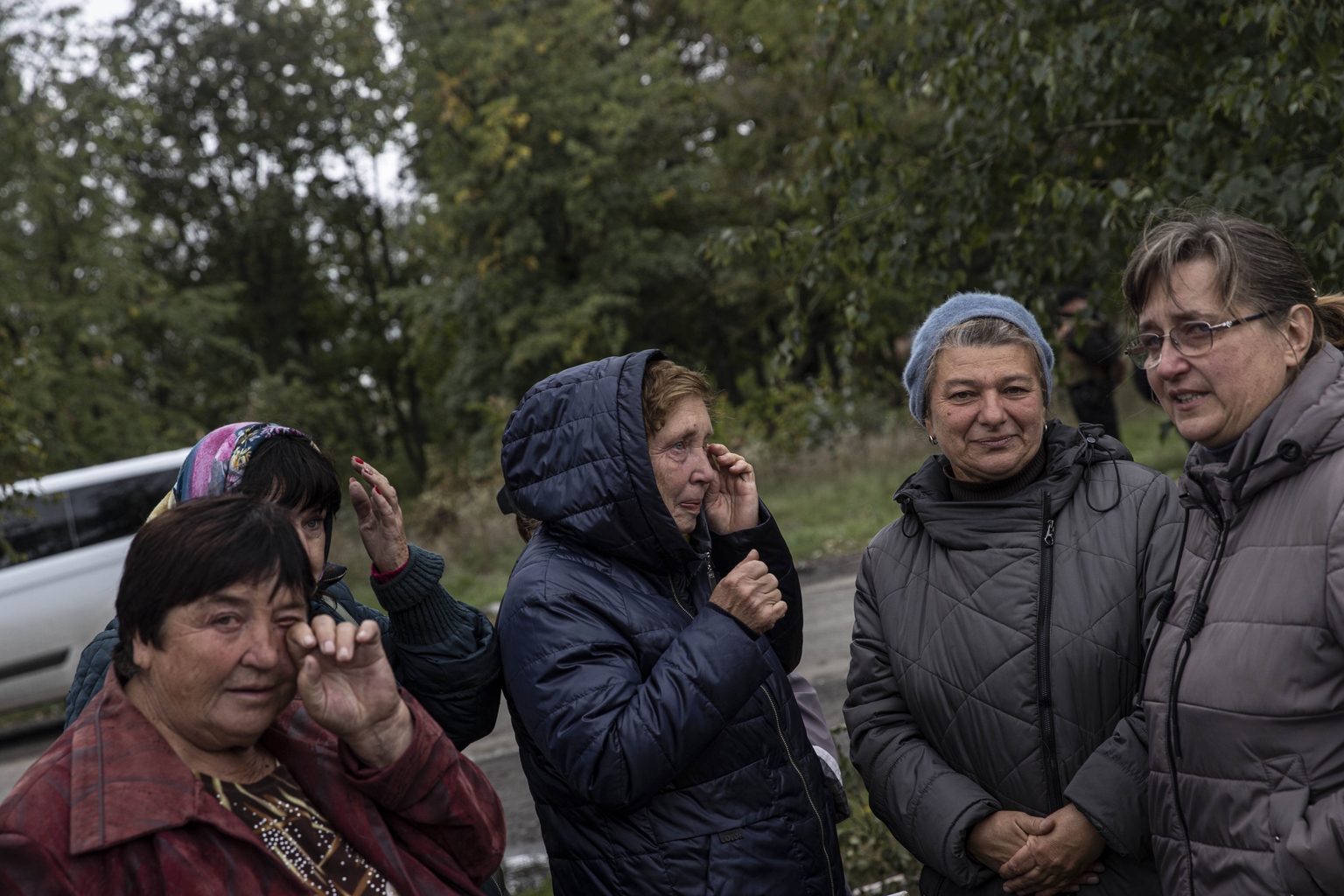
For the locals, the day when the Ukrainian military came back was a moment of long-awaited relief.
Many local women start weeping as they talk about what has been happening over the last seven months. Verbivka had almost seven months of fear, humiliation, violence, and looting under Russian occupation.
The Verbivka story is typical among other Ukrainian towns under the Russian occupation. Until Sept. 6, the town was occupied by units with Russia’s 11th Army Corps, special police, and militant forces, which would later sustain heavy losses in the sudden Ukrainian strike.
According to residents, the closer it was to the front line, the more relentless Russian looting was.
“They took all they could from many houses,” says Tetyana Sinovoz, a 59-year-old local milk factory worker.
“When they saw a nice household, they would sometimes force the owners out, just like that, let them have their passports only.”
For the people of Verbivka, it was a time of fear.
“The worst thing is that you know anything could happen to you,” says Sinovoz.
“They could come to anyone for any reason and do anything to you. And there was absolutely nothing to stop them.”
“I am old; they had no problems with me. But I was really worried about my niece. She’s 17, and she was here in this mess,” Sinovoz said. “We managed to take her away from here secretly.”
“As for us — we were always afraid, trying to stay indoors for as long as possible, not to catch their eyes. A man with a gun is always scary.”
As pretty much anywhere, there were collaborators.
Those mainly were locals seeking power over their fellow townspeople and a chance to put their hands on local businesses and properties or join the embezzlement of Russian funds.
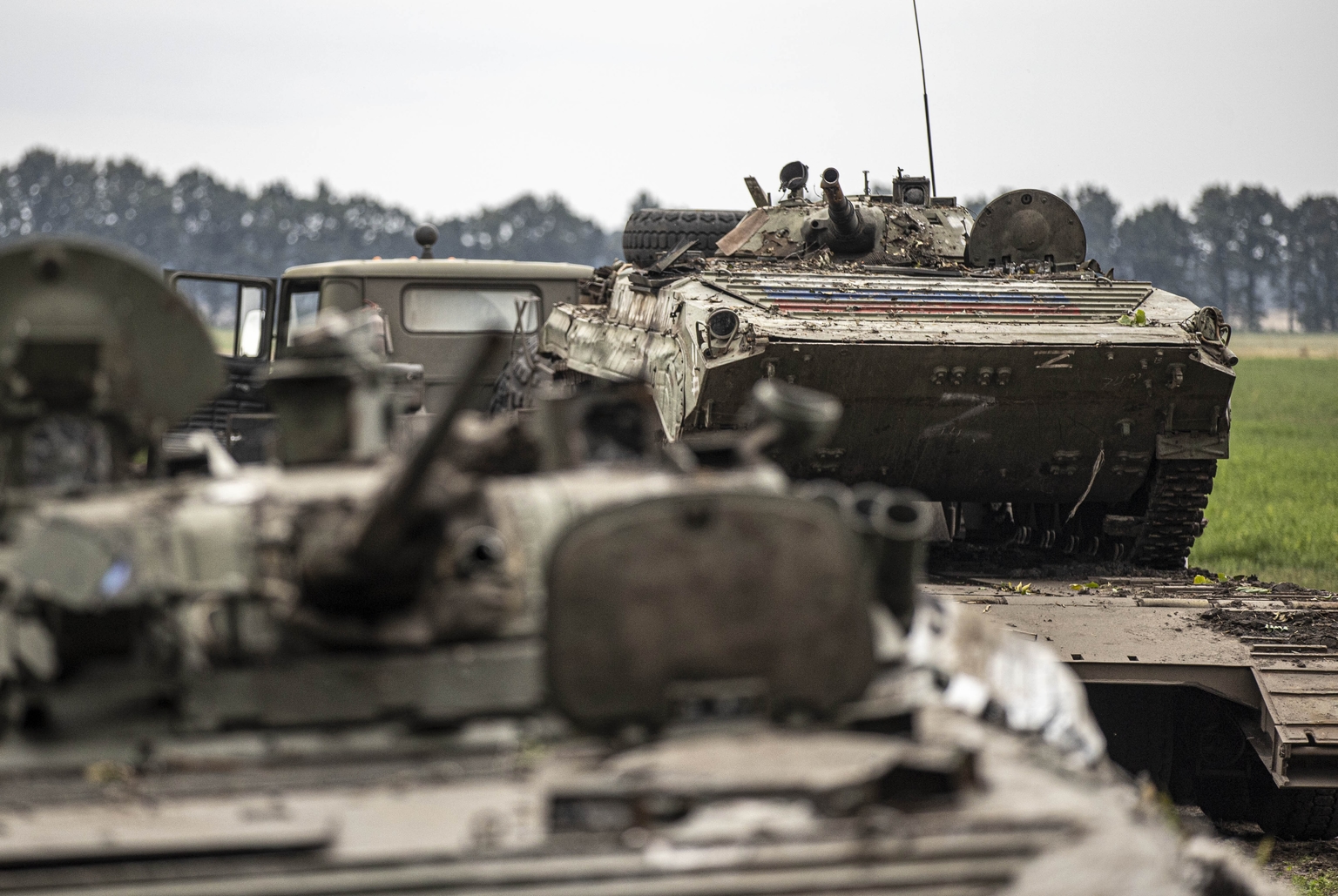
Collaborators reporting on their neighbors was a very normal thing.
They all fled the town in a rush along with the Russian military, loathed and despised by their former fellow townsfolk.
“May god forgive me for this, but if there will be an investigation, I’ll be naming names,” says Sinovoz.
“They helped Russians rob their neighbors, they wanted money and authority over us. Everybody in the town knows who did that, and the whole of Ukraine will know soon.”
Collaborators did a lot of harm, reporting on Ukrainian retired war veterans and their families.
Russians would haunt young, strong males suspected of being prone to armed resistance.
Those detained in improvised Russian jails were beaten and interrogated.
Some were released, but others were not.
Thus, according to the people of Verbivka, a local resident Oleh Skomorokha was detained by Russians in March. To this day, no one knows if the man is still alive.
“They would take people off the streets,” says Volodymyr Vynnyk, an elderly local resident.
“You sneeze the wrong way, or you say something wrong — you get a sack on your head, and they take you to a house they use as a jail. You know what they did to people in those jails.”
“I personally saw Russians take two men with sacks on their heads into the school. We have no idea who those men were and if they ever left the building alive,” he said.
The Lord’s Prayer
Dark rumors were spreading inside the town of young people being detained or even killed in neighboring Balakliia.
Ukrainian troops entering the city on Sept. 8 found evidence behind those rumors.
A local police station was turned into jail where local civilians, men, and women, were held and interrogated.
According to local resident Artem Larchenko, who has allegedly spent 49 days in captivity, Russians tortured captives with electric shock, making them scream so that others could hear.
The captives — the ones suspected by Russians of being former soldiers, activists, or fire spotters assisting the Ukrainian military — scribbled the Lord’s Prayer (“Our Father, who art in heaven…”) on their cell wall.
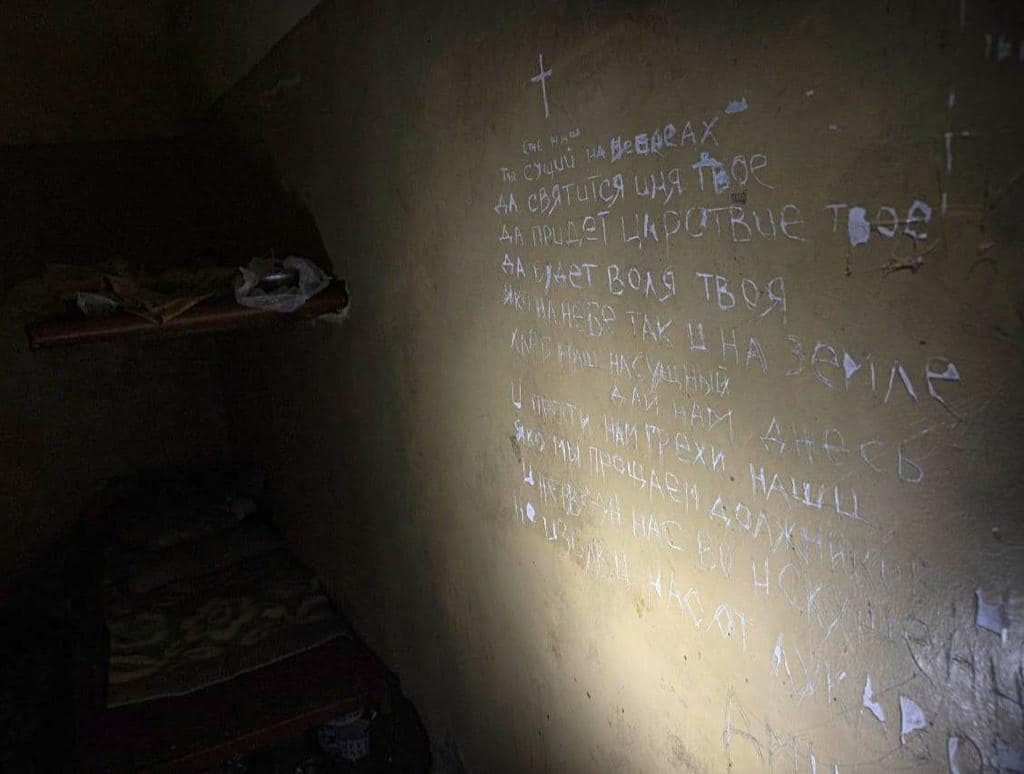
Russians left the jail behind while retreating under Ukrainian strikes — some 40 captives had to break free from their cells by themselves, according to the Ukrainian police.
The Verbivka school and the Balakliya torture chamber have been revealed as the worst scars of the Russian occupation.
Many residents say they are glad the worst is finally over. Many of them say they believe Russians will never come back.
“We’re optimistic,” says Olena Lysenko, the school’s deputy director.
“We will work on reconstructing as hard as we can. We really, really want our school re-established.”
“So that our kids could study…” she bursts into tears again.
_______________________________________________________
Note from the author:
Hello! My name is Illia Ponomarenko, the guy who wrote this piece for you.
I hope you found it useful and interesting. I work day and night to bring you quality stories from Ukraine, where Russia is waging the biggest war in Europe since WWII. My little homeland, Donbas, is now the site of the worst fighting. We are helping to keep the world informed about Russian aggression. But I also need help from every one of you — to support Ukrainian wartime journalism by donating to The Kyiv Independent and becoming our patron.
Together, we can help bring peace to Ukraine.
